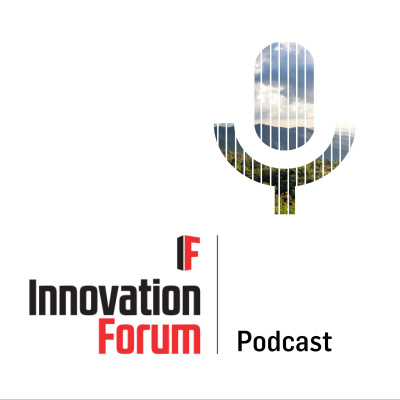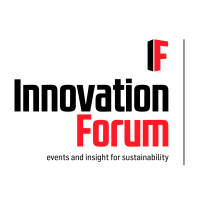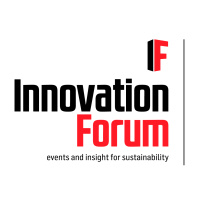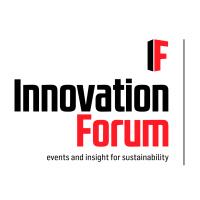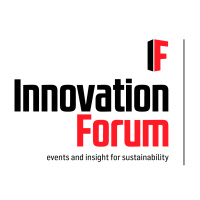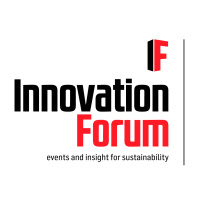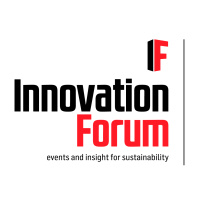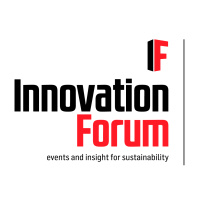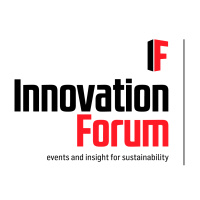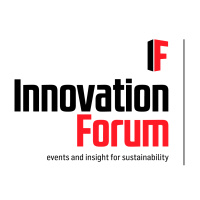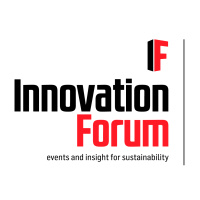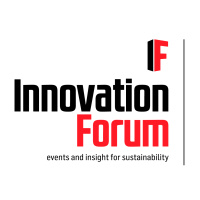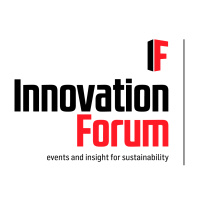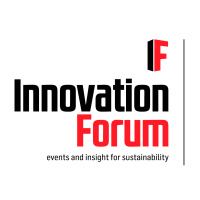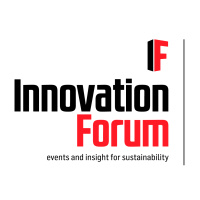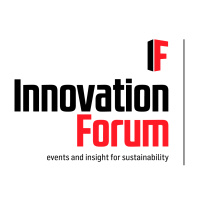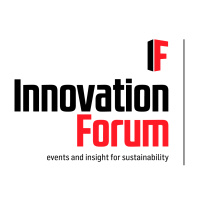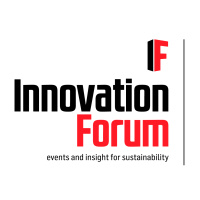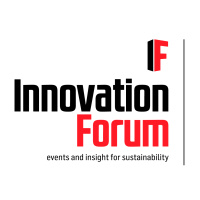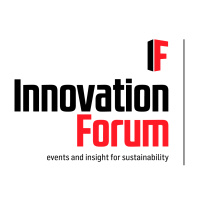Sinopsis
Regular podcasts on sustainable business issues from Innovation Forum
Episodios
-
Weekly podcast: The story behind the Amazon fires
12/09/2019 Duración: 25minThis week: Niels Wiellard from Satelligence on how satellite data analysis can provide crucial details about why the Amazon fires have hit record numbers this year. And Schneider Electric’s Nathan Schuler on the rise and rise of science-based targets. Plus, in the news digest: Greenpeace drops Wilmar, Unilever and Mondelez; cocoa sustainability to be regulated in Ghana and Côte d’Ivoire; mineral mining exploitation; and, $11tn now divested from fossil fuels. Hosted by Ian Welsh
-
Why food companies must innovate to cut impact
11/09/2019 Duración: 13minJon Dettling, global director for services and innovation at Quantis, and Innovation Forum’s Ian Welsh discuss some of the challenges for businesses in the food supply industry, and how they have to innovate to make the necessary change to control impacts. Dettling points out the requirement for measuring and tracking benefits – as there is no point in developing a ‘sustainable’ product that ends up being a business failure. And they discuss how the potentially game-changing switch for consumers to plant-based alternatives to meat might eventually reflect a overall trend towards long-term sustainable food supply.
-
Weekly podcast: How business can realistically cut plastic use
05/09/2019 Duración: 30minThis week: Nestlé’s Anna Turrell, Plastics Europe’s Eric Quenet and Closed Loop Partners’ Kate Daly on the wholesale business changes necessary to reduce corporate plastic footprints. And Cargill’s Marie Lavialle-Piot, PepsiCo’s Natasha Schwarzbach and Proforest’s Sophie Higman on the benefits of a landscape approach for sustainable palm oil. Plus: brands banning Brazilian leather, Blackrock linked to deforestation, India’s single-use plastic ban, and animal protein suppliers don’t meet brands’ commitments, in the news digest. Hosted by Ian Welsh
-
Plastics Oceans UK on how to avoid unintended consequences of switching from plastic
05/09/2019 Duración: 10minSimon Usher, CEO Plastics Oceans UK, talks with Ian Welsh about some of the changes in public attitudes and political concern around plastic pollution, and the role of business to tackle the problem. Usher says he’s encouraged by innovation in packaging materials, but argues for the collaboration necessary to achieve real systems change. However, frustrations come, he says, from a rush to switch to alternatives without considering the full lifecycle analysis of making the change. Simon Usher will be speaking at Innovation Forum's future for plastics conference in Amsterdam on 30th and 31st October. Click here for full details.
-
Weekly podcast: how financial institutions are driving sustainable landscapes
29/08/2019 Duración: 32minThis week: ABN Amro’s Dick Ligthart, M&G Investments’ Anita McBain and Invesco’s Maria Lombardo on the role of the investment community in global commodities supply chains. And Ocado’s Suzanne Westlake on the challenges of developing more sustainable packaging that involves less plastic. Plus: G7 weighs in on Amazon fires, palm oil free product labelling ban in Indonesia, Tesco threatens to de-list brands on plastic use and Primark’s training to reach 160,000 farmers, in the news digest. Hosted by Ian Welsh
-
The role of biofuels in a just transition to a low carbon economy
29/08/2019 Duración: 10minStephen Wetmore, director of business development at the Roundtable on Sustainable Biomaterials, and Ian Welsh discuss biofuel feedstocks and their role in moving to a low carbon economy. Wetmore outlines the challenges around balancing the demands in a developing bio-economy, and debates some of the unintended consequences that can arise. He argues the case for always keeping ultimate relative carbon emissions front of mind when considering the best use of potential feedstocks.
-
Webinar – A roadmap to 2025: how business can achieve plastics targets
27/08/2019 Duración: 59minWhen it comes to plastics, all stakeholders ultimately want the same thing: to reduce and eliminate plastic waste so they leave the environment in a better place for generations to come. Leading brands and retailers have already committed to some ambitious 2025 goals. But what about the practicalities and realities of achieving these targets? In this webinar a panel of business experts discuss some of the wholesale business changes required to reduce plastic footprints, and make the right plastics sustainable. Panel: Anna Turrell, head of sustainability, Nestlé UK Eric Quenet, director, western Europe, PlasticsEurope Kate Daly, executive director, Centre for the Circular Economy, Closed Loop Partners Introduced and moderated by Ian Welsh
-
Weekly podcast: how public attitudes are impacting plastic pollution trends
22/08/2019 Duración: 28minThis week: Simon Usher, CEO of Plastics Oceans UK, on the trends and innovations developing in plastics packaging and pollution, and the systems change necessary to avoid a rush to higher-impact alternatives. Plus, Rainforest Alliance’s Leah Samberg and Forest Trends’ Philip Rothrock discuss tools to help brands to deliver deforestation commitments. And: Amazon fires and President Bolsonaro, palm oil’s Brexit angle, plastic polluting the Arctic and the growth of apparel resale, in the news digest. Hosted by Ian Welsh Please note that the Detroit event discount code for podcast listeners is POD20. Click here to register.
-
Rainforest Foundation Norway on biofuel’s impact on deforestation
22/08/2019 Duración: 11minNils Hermann Ranum, head of the drivers of deforestation programme at Rainforest Foundation Norway, talks with Innovation Forum’s Toby Webb about biofuel feedstocks, including palm oil, the associated land use change and its potential impact on forests and indigenous communities. They debate what a sustainable biofuel policy might look like, and how it could be used to encourage better production policies in palm oil and other potential biofuel feedstocks.
-
How to align business and worker interests in the Indian apparel sector
22/08/2019 Duración: 13minAnant Ahuja, co-founder and CEO of Good Business Lab, talks with Innovation Forum’s Haafizah Khodabocus about his organisation’s work in apparel factories in India. He explains how his family background in Indian apparel business Shahi Exports has helped inspire Good Business Lab’s worker empowerment programmes, and they discuss collaboration projects with Gap and other brand partners.
-
Weekly podcast: innovation in agriculture supply chains, and how Microsoft and Hilton engage the C-suite on sustainability
15/08/2019 Duración: 35minThis week: Jon Dettling from Quantis on how business can innovate to tackle supply chain challenges in the agriculture sector, including game-changing plant-based alternatives to meat. And Hilton’s Daniella Foster and Microsoft’s Jennifer Marsman outline how they engage their senior colleagues on the business case for sustainability, how to measure positive impacts, and the importance of ‘story-telling’ to keep communications relevant. Plus: fallout from the latest IPCC report; benefits of switching subsidy to renewable energy technology; and, M&S and Aldi’s latest packaging innovations to remove single use plastics, in the news digest. Hosted by Ian Welsh
-
GAR on the emotional debate around palm oil as a biofuel
15/08/2019 Duración: 19minAnita Neville, senior vice-president group corporate communications, Golden Agri-Resources, and Ian Welsh discuss the challenges for the palm oil sector in developing the crop as a biofuel feedstock. Neville argues that there is not a level playing field for potential inputs into biofuels, and a lack of life cycle analysis into relative impacts of different crops. They also discuss supply chain deforestation risks, and reasons why most companies are going to miss 2020 targets, despite significant innovation in use of technology to, for example, identify areas of tree loss and land use change.
-
How Tesco frames its environmental targets
15/08/2019Kené Umeasiegbu, head of environment at Tesco, talks with Ian Welsh about how the business has used science-based targets to catalyse action in its operations and supply chains. He argues for setting environmental targets that are stretching while realistically achievable – and points out the importance of setting milestones so that progress can be demonstrated to both internal and external stakeholders.
-
Webinar – Money talks: How financial institutions are driving sustainable landscapes and commodities
12/08/2019 Duración: 01h03minOver the past decade, sustainable and impact investing has grown from a niche form of financing to being implemented by practically every major financial institution. Companies such as COFCO and Wilmar have secured substantial loans tied to their sustainability efforts. Similarly, BNP Paribas announced it would use $10bn in capital by 2025 for projects that are committed to improving social and environmental impact in developing countries. The World Bank also recently doubled its five-year climate investments to around $200bn. However, the impact of this growing interest in sustainable finance still remains unclear and there is still no real consensus on how to measure it. In this hour long webinar, we assess how finance is engaging in sustainable commodities and ask our speakers questions such as: • Has sustainability finally started to take centre stage within financial institutions? • What type of information, metrics, targets and KPIs are investors seeking? • Which sustainable financing options are now a
-
Webinar – Delivering on supply chain commitments: Closing the accountability loop in 2020 and beyond
31/07/2019 Duración: 57minThe past two years have seen rapid progress in the emergence of norms and best practices for setting and implementing commitments to eliminate deforestation, ecosystem conversion and human rights abuses from supply chains. There has also been a proliferation of tools and approaches for the evaluation of company progress and performance. In this webinar, we’ll discuss how companies can use newly available tools and platforms to deliver on their supply chain commitments. We’ll also assess how they can accurately and effectively measure and demonstrate that success. We’ll discuss: • What is the Accountability Framework, and how can it be used to strengthen and accelerate company commitments? • What are the latest developments and new norms around supply chain transparency? • How the Accountability Framework and Supply Change guide corporate reporting • How companies can measure progress and outcomes related to corporate commitments Speakers: • Dr Leah Samberg, Staff Scientist with the Rainforest Alliance and th
-
Weekly podcast: how biofuels can be part of a zero-carbon economy, and apparel sector worker empowerment
25/07/2019 Duración: 28minThis week: Stephen Wetmore from the Roundtable on Sustainable Biomaterials and Ian Welsh discuss biofuel feedstocks and their role in moving to a low carbon economy. And Anant Ahuja from Good Business Lab talks with Innovation Forum’s Haafizah Khodabocus about his organisation’s work in Indian apparel factories and worker empowerment. Plus: latest OECD/FAO agri supply chain predictions; companies with $1.3tn commit to 1.5C warming; CDP hits out at deforestation transparency; and, Inditex’s 100% sustainability pledge, in the news digest. Hosted by Ian Welsh
-
The Nature Conservancy on what a Cerrado conservation agreement might look like
25/07/2019 Duración: 09minDavid Cleary, head of agriculture at The Nature Conservancy, talks with Toby Webb about the shifting patterns of deforestation in South America, and land conversion challenges for forests and other biomes, including the Cerrado grasslands. They discuss the impacts of different commodities on land use change, including soy, and specifically the Cerrado manifesto and the barriers to moving to a full agreement. And they talk about the beef sector’s impact on deforestation and why its fragmentation leads to greater challenges.
-
How to avoid data overload in the food and forest sectors
23/07/2019 Duración: 08minRob Waterworth, chief executive of the Mullion Group, discusses with Innovation Forum’s Ian Welsh what the food sector can learn from forestry to improve stakeholder relationships and trust. Waterworth argues that challenges being faced by the food sector now reflect many that forestry faced in the 1970s and 1980s, in Australia in particular. While technology is providing exciting opportunities, there is a danger of there being too many solutions looking for problems. Choosing the right technology to answer specific questions is a better approach, if a challenge in itself, he says. The Mullion Group was a sponsor of the recent Innovation Forum Future of Food conference in London.
-
Weekly podcast: How to mitigate biofuel impacts on land use change and tropical deforestation
19/07/2019 Duración: 26minThis week: Nils Hermann Ranum, head of the drivers of deforestation programme at Rainforest Foundation Norway, talks with Innovation Forum’s Toby Webb about biofuel feedstocks, including palm oil, the associated land use change and its potential impact on forests and indigenous communities. And, another chance to hear from Joe Franses, vice-president, sustainability at Coca-Cola European Partners, talking with Ian Welsh about deposit return schemes for plastic bottles, and other plastic use challenges. Plus: EU trade deal links to Amazon deforestation, apparel sector circularity progress, and academic groups declare climate emergency, in the news digest. Hosted by Ian Welsh
-
Quantis on how the food sector can establish clear climate strategy roadmaps
19/07/2019 Duración: 10minCarole Dubois, senior sustainability consultant and food sector lead at Quantis, talks with Ian Welsh about how companies can use science to develop the targets that will drive business value in the food and agriculture sectors. She outlines some of the challenges to set the right science-based targets and the disruptive, bold solutions required for all business if the 1.5C limits to global warming are to be achieved. This will need, she argues, the establishment of more meaningful data to help set baselines and then to track progress. Quantis was a sponsor of the recent Innovation Forum Future of Food conference series.
